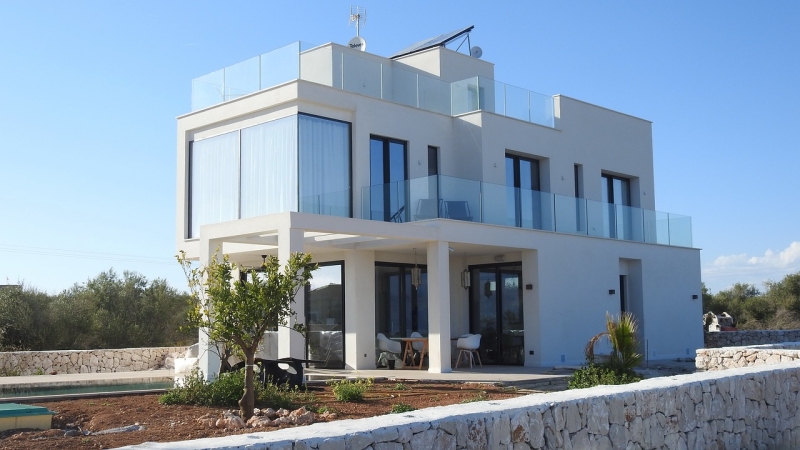Are you considering investing in real estate in the Philippines? Condominiums can be a lucrative option, offering a range of benefits and potential for financial growth.
In this guide, we’ll explore the ins and outs of investing in condominiums, providing you with essential information and expert insights to help you make informed decisions.

As the demand for rental properties continues to rise, understanding the fundamentals of rental property investing is crucial. Whether you’re a seasoned investor or a beginner exploring the world of real estate, this guide will equip you with the knowledge needed to navigate the Philippine rental market and maximize your returns.
From the basics of Philippine rental property investments to house flipping opportunities, we’ll cover it all. Let’s dive in and uncover the secrets to successful real estate investment in the dynamic landscape of the Philippines.
Benefits of Investing in Condominiums
Investing in condominiums offers numerous advantages for real estate investors in the Philippines. Let’s explore some of the key benefits that make condominiums an attractive investment option:
High Potential for Rental Income
Condominiums are in high demand, particularly in urban areas with a growing population and limited space. This presents an excellent opportunity for investors to generate steady rental income.
With a well-located and well-maintained condominium, you can attract tenants and enjoy a consistent cash flow.
Ease of Property Management
Compared to traditional houses or apartments, condominiums typically have a homeowners association (HOA) that takes care of common areas, maintenance, and security. This relieves investors of the burden of managing these aspects themselves, saving time and effort.
Access to Amenities and Facilities
Condominiums often come with a range of amenities such as swimming pools, fitness centers, and 24/7 security. These attractive features not only enhance the living experience for tenants but also increase the rental value of the property.
Investing in a condominium gives you the advantage of offering these amenities to potential tenants.
Potential for Capital Appreciation
The real estate market in the Philippines has been witnessing steady growth over the years, and condominiums have been a significant contributor to this upward trend. Investing in a condominium today could potentially lead to substantial capital appreciation in the future.
As demand continues to rise and urban areas develop, the value of your investment may increase significantly.
By considering these benefits, you can see why investing in condominiums can be a smart move in the Philippine real estate market. However, it’s essential to thoroughly evaluate each investment opportunity and consider other factors before making a decision.
Factors to Consider Before Investing

Before diving into a condominium investment in the Philippines, it’s crucial to take several factors into consideration. By assessing these key elements, you can make informed decisions and minimize potential risks.
Here are the essential factors to consider:
Location and Accessibility
The location of the condominium plays a vital role in its desirability and potential for rental income. Look for properties situated in prime areas with good transportation links, proximity to commercial centers, schools, and other amenities.
Accessibility is key to attracting tenants and ensuring a steady rental demand.
Developer Reputation and Track Record
Research the reputation and track record of the condominium developer. Choose a developer with a solid portfolio, positive reviews, and a history of delivering quality projects on time.
This ensures that your investment is in the hands of a reliable and trustworthy developer.
Affordability and Financial Considerations
Evaluate your financial situation and determine how much you can comfortably invest in a condominium. Consider not just the purchase price but also additional costs such as taxes, maintenance fees, and potential loan repayments.
Assess the affordability of the investment and ensure it aligns with your long-term financial goals.
Understanding the Rules and Regulations
Familiarize yourself with the rules and regulations governing condominium ownership in the Philippines. Each development may have its own set of bylaws and restrictions that govern tenant occupancy, property management, and use of common areas.
Understanding these regulations will help you make informed decisions and avoid any legal or compliance issues.
By carefully considering these factors, you can make a well-informed decision before investing in a condominium in the Philippines. Taking the time to conduct thorough research and due diligence will increase your chances of a successful and profitable investment.
Financing Options for Condominium Investments

When it comes to investing in condominiums in the Philippines, exploring various financing options is crucial. Just like in flipping houses, understanding the available avenues for financing can help you make the most of your investment potential.
Consider the following financing options:
Bank Loans and Mortgage Options
One common method of financing a condominium investment is through bank loans or mortgage options. Many banks offer loan programs specifically designed for real estate investments.
Compare interest rates, loan terms, and eligibility requirements from different banks to find the most suitable option for your investment needs.
Government Housing Loan Programs
The Philippines government provides housing loan programs that can be utilized for condominium investments. Agencies such as the Pag-IBIG Fund (Home Development Mutual Fund) offer affordable and flexible financing options to eligible individuals.
Explore these government-backed programs and consider the benefits they offer.
Developer Financing Options
Some condominium developers offer their own financing options to potential buyers. These may include flexible payment plans, down payment assistance, or in-house financing.
It’s essential to carefully review the terms and conditions of developer financing options and assess their feasibility in relation to your investment strategy.
Factors to Consider When Choosing a Financing Option
When evaluating financing options, consider factors such as interest rates, loan duration, repayment terms, and associated fees. Assess your own financial capabilities, risk tolerance, and long-term investment goals.
Additionally, factor in the potential rental income and projected return on investment to determine the most suitable financing option for your specific needs.
By exploring these financing options, you can identify the best approach to fund your condominium investment in the Philippines. Carefully consider the terms, rates, and feasibility of each option, ensuring that it aligns with your financial goals and investment strategy.
Tips for Successful Condominium Investment

Investing in condominiums can be a rewarding venture in the Philippines, but it requires careful planning and strategic decision-making. To maximize your chances of a successful investment, consider the following tips:
Conduct Thorough Research and Due Diligence
Before investing in a condominium or a rental property, gather as much information as possible about the property, its location, market trends, and potential rental demand. Analyze the developer’s track record, the financial health of the homeowners association, and any upcoming developments in the area.
This research will help you make an informed rental property investment decision.
Consider Long-Term Investment Goals
Define your long-term investment goals and align them with your condominium investment strategy. Are you looking for steady rental income or aiming for capital appreciation?
Understanding your objectives will help you make informed decisions about property selection, location, and rental management.
Seek Professional Advice From Real Estate Experts
Consulting with real estate professionals, such as agents, brokers, or property managers, can provide valuable insights and guidance. They can help you identify lucrative investment opportunities, assess market trends, and navigate legal and financial considerations.
Their expertise can significantly enhance your investment strategy.
Understand the Rental Market and Potential Tenants
Gain a thorough understanding of the rental market in the specific area where you plan to invest. Analyze rental rates, vacancy rates, and tenant preferences.
Consider the target demographic and their needs. This knowledge will help you market your condominium effectively and attract suitable tenants.
By implementing these tips, you can increase the likelihood of a successful condominium investment in the Philippines. Remember, investing in real estate requires careful consideration and a long-term perspective.
With the right approach, condominiums can offer excellent returns and contribute to your financial goals.
Potential Risks and Mitigation Strategies

Investing in condominiums in the Philippines can come with its fair share of risks. However, by understanding these risks and implementing effective mitigation strategies, you can navigate the real estate landscape with confidence.
Let’s explore the potential risks and discover ways to safeguard your investment:
Market Volatility and Economic Factors
Like any investment, condominiums are not immune to market fluctuations and economic downturns. The real estate market can experience periods of volatility, impacting property values and rental demand.
Mitigate this risk by diversifying your investment portfolio, conducting thorough market research, and staying updated on economic indicators. This knowledge will help you make informed decisions and adjust your strategies accordingly.
Maintenance and Homeowners Association Fees
Condominium investments require ongoing maintenance and payment of homeowners association (HOA) fees. These fees cover shared expenses such as building maintenance, security, and amenities.
Failure to budget for these costs can impact your profitability. Mitigate this risk by thoroughly assessing the HOA’s financial health, reviewing the budget and reserve fund, and understanding the fee structure before making a purchase.
Potential Oversupply in Certain Areas
In some areas, there may be a risk of oversupply of condominium units, leading to increased competition and potential downward pressure on rental rates. Mitigate this risk by conducting market analysis and focusing on areas with strong demand fundamentals, such as proximity to commercial centers, transportation hubs, and educational institutions.
Investing in unique properties with distinct features can also set your condominium apart from the competition.
Insurance Considerations and Risk Management
Protecting your investment from unforeseen events is crucial. Risks such as natural disasters, accidents, or tenant-related issues can pose financial challenges.
Mitigate these risks by obtaining comprehensive insurance coverage for your condominium, including property insurance, liability insurance, and coverage for loss of rental income. Regular property inspections and tenant screening can also minimize potential risks.
By acknowledging and proactively addressing these risks, you can safeguard your investment and minimize potential setbacks. Remember, investing in condominiums is a long-term commitment, and being prepared for potential risks is an essential aspect of successful real estate investment.
To Wrap Up
In conclusion, investing in condominiums in the Philippines presents a promising opportunity for individuals looking to venture into the real estate market. By understanding the benefits, considering crucial factors, exploring financing options, and implementing effective strategies, you can position yourself for a successful investment journey.
Condominiums offer advantages such as high potential for rental income, ease of property management, access to amenities, and the possibility of capital appreciation. However, it’s essential to carefully evaluate factors such as location, developer reputation, affordability, and compliance with regulations.
Thorough research, consultation with real estate experts, and a clear understanding of your long-term investment goals will guide you towards making informed decisions. Additionally, it’s crucial to stay vigilant about potential risks such as market volatility, maintenance fees, oversupply in certain areas, and insurance considerations.
Mitigating these risks through diversification, careful financial planning, and risk management strategies will safeguard your investment.
Investing in condominiums is a dynamic journey that requires continuous learning and adaptation. By staying informed, being proactive, and monitoring market trends, you can maximize the potential returns on your investment.
Now armed with the knowledge and insights provided in this guide, you are better equipped to embark on your condominium investment journey in the Philippines. Remember, patience, due diligence, and a long-term perspective are key to achieving success in the ever-evolving world of real estate.







